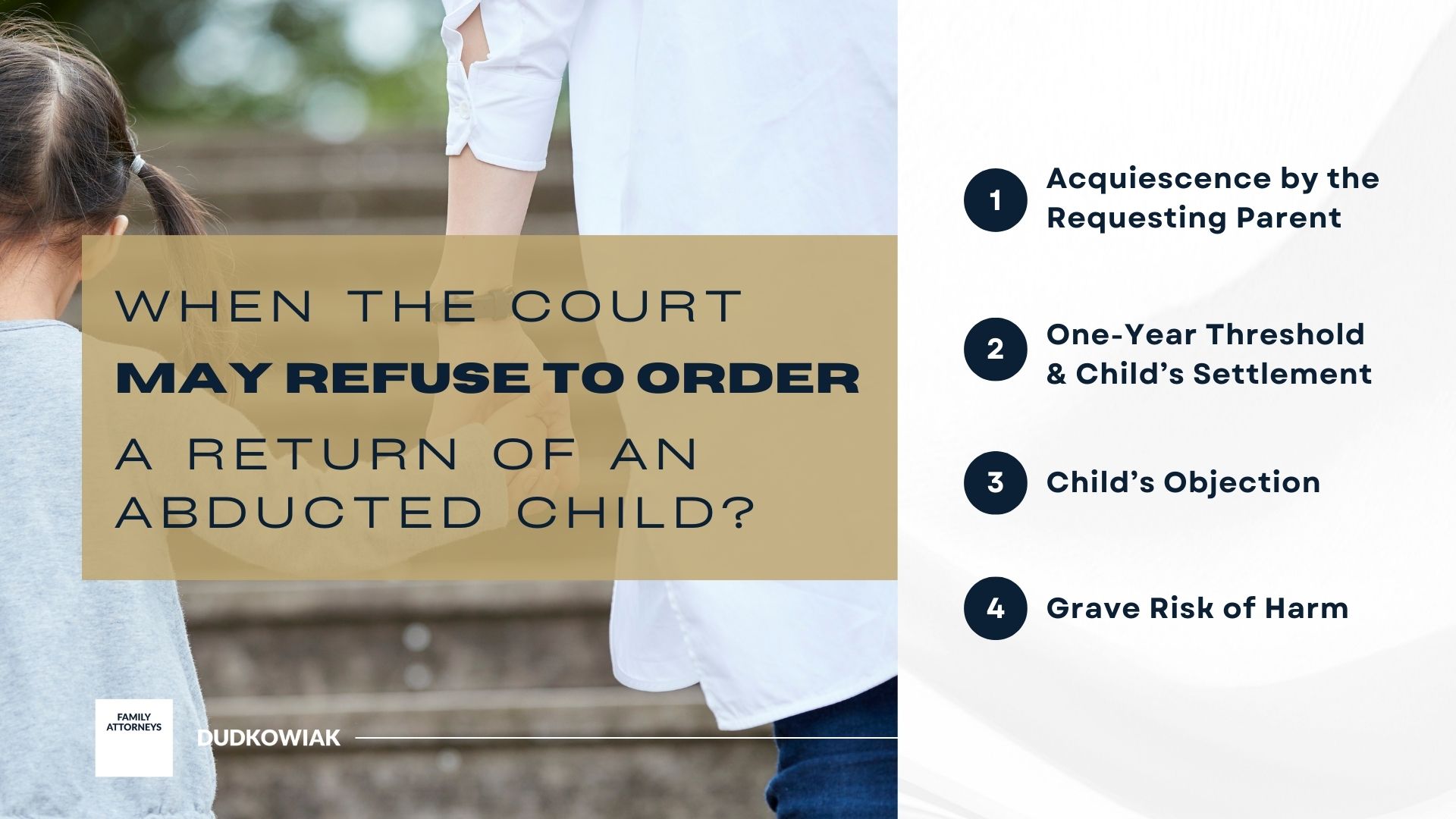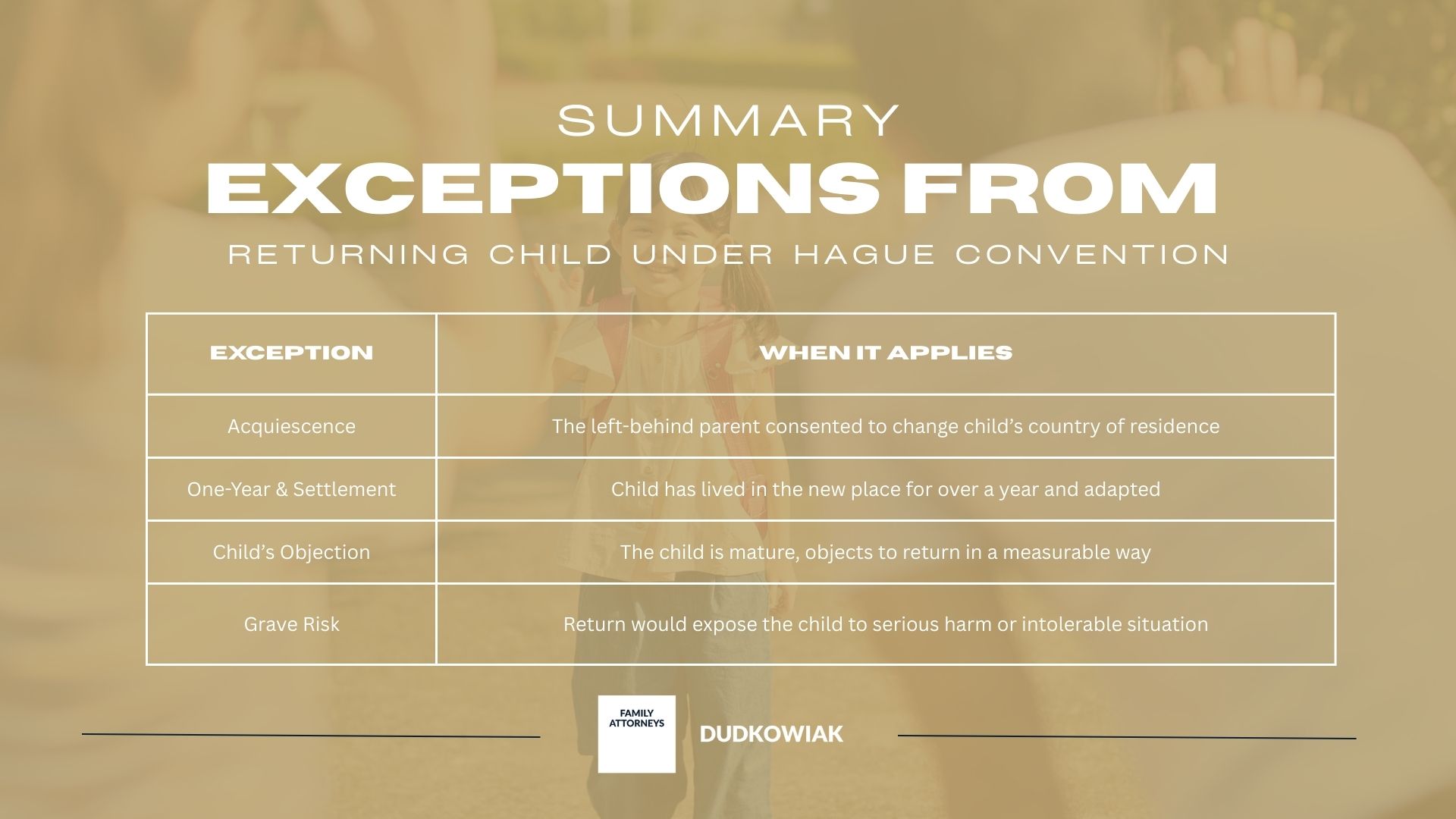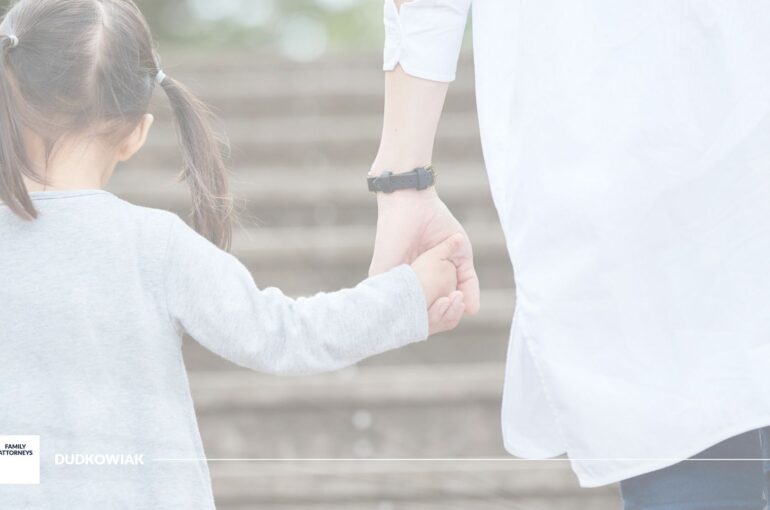Can a Polish Court Refuse Return of Child Under the Hague Abduction Convention?
At Dudkowiak Family Lawyers, we understand the urgency and emotional charge behind child abduction cases. While the Hague Convention’s goal is to promptly return a child to their habitual residence, Polish courts may refuse to return a child in specific, narrowly defined circumstances.
When the Court May Refuse to Order a Return of an Abducted Child?
When a child has been wrongfully removed from habitual residence, Article 12 of the Hague Convention establishes a general obligation to return of the child. But Article 13 introduces limited exceptions, allowing Polish courts discretion to refuse return of the child to habitual residence if these are convincingly demonstrated by the opposing party:
- Acquiescence by the Requesting Parent
If the parent seeking return allowed or accepted the child’s removal, the court may deny the application. - One-Year Threshold & Child’s Settlement
If more than 12 months have passed since wrongful removal, and the child is well adjusted to their new environment, return can be refused. - Child’s Objection
A mature child’s expressed opposition may be considered – provided the child has reached a sufficiently advanced age and maturity. A mere preference is not enough; courts require a well-founded objection. - Grave Risk of Harm
Courts may deny return if the child faces serious physical or psychological harm – or would be placed in an intolerable situation – upon being sent back to habitual place of residence.
These exceptions are narrow by design and must be supported by clear and convincing evidence.

Case Studies: Courts Refusing Return of Child
- Article 13(b) “Grave Risk” Invoked
In one case, a Polish court cited potential emotional harm in denying a child’s return – arguing that disrupting the child’s secured sense of well-being would be detrimental. - Settled Life Used as Justification
Other decisions have acknowledged that a child’s successful integration – school, friends, well-being – can outweigh the general return mandate, particularly when the one-year rule applies.
Our Legal Opinion on Refusal to Return Abducted Child
While these legal safeguards exist to protect truly vulnerable children, they must be applied with caution. In our view:
- Courts should not conflate best interests with objections – Hague exceptions are not meant to accommodate convenience or preference.
- The threshold for “grave risk” must be high – mere discomfort or adaptation challenges cannot justify non-return.
- Delays in proceedings or inadequate enforcement should not become de facto barriers to return. Efficient process and judicial cooperation are key.
At our firm, we advise affected parents to act swiftly – gathering documented evidence, engaging local counsel, and initiating applications immediately through the proper channels.

Your Child Was Abducted: What Can You Do?
If you’re seeking a child’s return from Poland:
- Don’t wait – file application as soon as possible – we recommend applying straight to the Polish court.
- Provide evidence of habitual place of residence, exercised custody and emotional bonding.
- Use legal channels effectively – secure Polish expert representation for smooth handling.
- Avoid delay, which can allow exceptions to become easier to invoke.
For comprehensive guidance on Hague Convention proceedings and potential defenses, our Hague Abduction section at Dudkowiak Family Lawyers is available to support you through every step.


